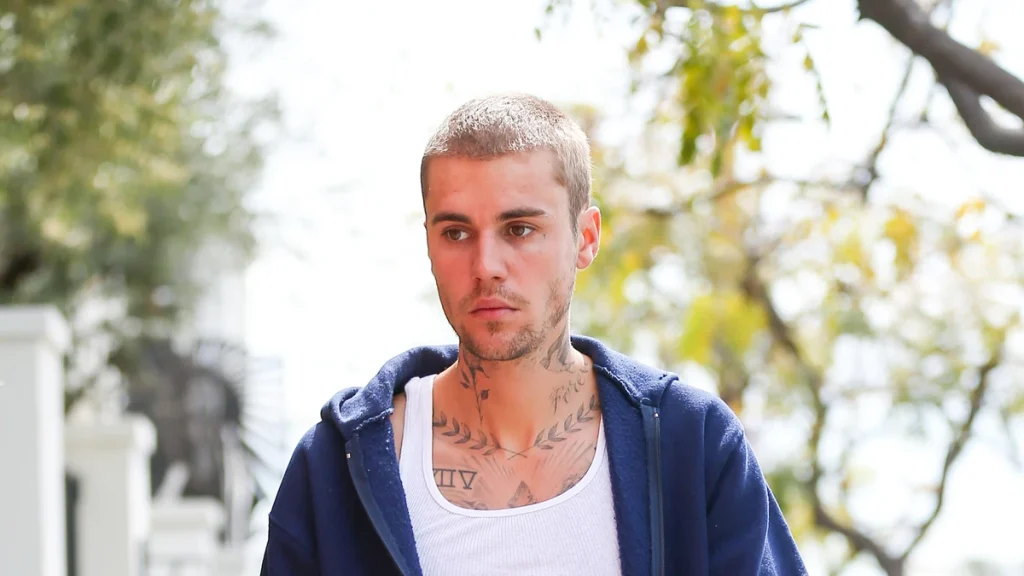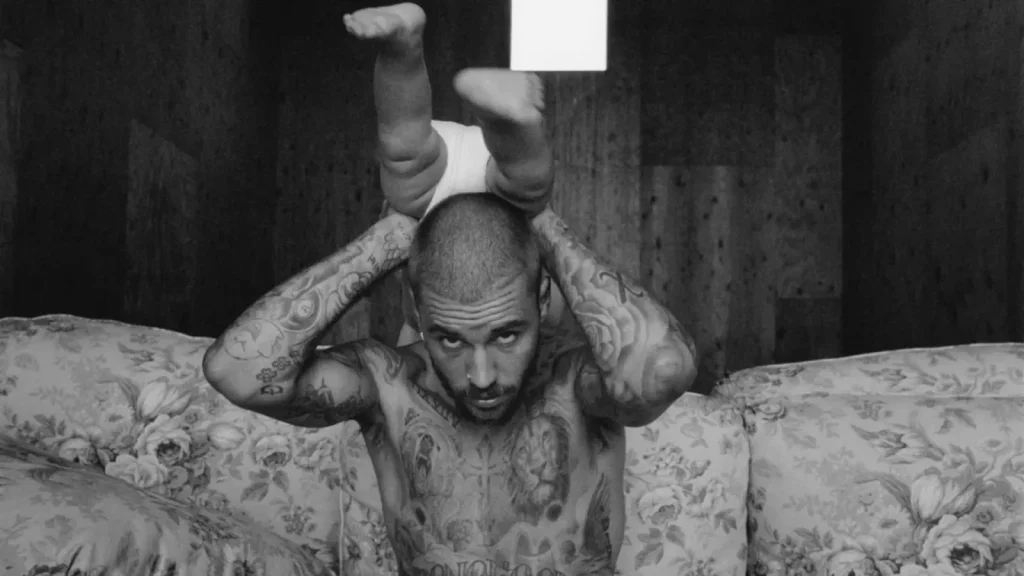
The Shockwave That “Swag” Sent Across the Music World
When Justin Bieber announced his “Swag” album, fans were buzzing with excitement. But nobody expected that this release would spark one of the most controversial conversations in modern pop music. On the surface, “Swag” is packed with beats, hooks, and Bieber’s signature sound that has defined a generation. Yet underneath the glamour, the album carries hidden messages, cryptic lyrics, and raw emotions that peel back layers of Justin’s life—and perhaps expose a darker truth that the industry tried to bury.
For years, Bieber has been painted in extremes: either as the flawless pop icon adored by millions or as the troubled star caught up in scandals. But “Swag” feels different. It’s not just another project—it’s an exposé, a mirror to his past struggles, industry manipulation, and unspoken realities of fame. And if you listen closely, you’ll realize it’s less about flexing “swag” and more about reclaiming his identity in a world that tried to control him.
This article will dive deep into every angle: the hidden messages in lyrics, the controversies surrounding the release, the dark truth hinted at in interviews, and what “Swag” means for Bieber’s legacy. Prepare yourself—we’re about to uncover everything they never wanted you to know.
Justin Bieber’s Rise—From Teen Sensation to Global Icon
To truly understand the weight of “Swag,” we must revisit Justin Bieber’s journey. He didn’t just appear overnight; his story is a blueprint of modern fame.
- Discovered on YouTube: Justin’s homemade videos went viral, capturing the attention of Scooter Braun, who later became his manager.
- Signed with Usher: With Usher’s mentorship, Bieber was catapulted into stardom, becoming the youngest pop phenomenon of his time.
- The Bieber Fever Era: His debut single “Baby” turned into a global anthem, creating an army of “Beliebers” who followed his every move.
- The Price of Fame: As fame grew, so did controversies—paparazzi chases, arrests, and a highly publicized struggle with mental health.
By the time “Swag” came into the spotlight, Bieber was no longer the innocent teen with a bowl cut. He was a man hardened by fame, ready to tell the truth he had been holding back.
What Is the “Swag” Album? A Deeper Look
“Swag” is not your average Justin Bieber album. While the word “swag” traditionally evokes style, confidence, and success, here it becomes a metaphor for masks people wear to hide pain.
Key Themes in the Album:
- Illusion of Glamour: Tracks suggest that what looks perfect from the outside often hides chaos behind closed doors.
- The Dark Side of Fame: Bieber reflects on nights filled with emptiness despite being surrounded by wealth and fans.
- Hidden Battles: Lyrics reference silent struggles with trust, betrayal, and industry pressure.
- Rebellion Against Control: The tone feels like a declaration of independence from corporate strings and media narratives.
Every beat feels polished, but beneath the surface, Bieber seems to be screaming: “This is what they didn’t want me to say.”

Lyrical Breakdown—The Dark Truth in Plain Sight
Let’s zoom into the lyrics. Fans worldwide have been dissecting them, uncovering metaphors that point to deeper realities.
- References to Control: Several tracks mention being “chained,” “trapped,” or “watched.” These aren’t random phrases; they hint at the suffocating contracts and constant monitoring celebrities face.
- Shadows of Addiction: Bieber subtly acknowledges past struggles with substance use, though framed in artistic metaphors.
- Betrayal & Trust Issues: Repeated references to “fake love” and “smiles with knives behind them” suggest encounters with industry insiders who exploited him.
- Spiritual Undertones: Just like in “Purpose”, faith plays a role—but this time, it feels like he’s questioning as much as he’s affirming.
Each lyric, when pieced together, tells a story of a young star discovering that fame is not freedom—it’s a cage.

Why They Didn’t Want You to Know
Here’s the most controversial part: why is “Swag” considered an exposé? Because the album doesn’t just entertain—it exposes uncomfortable truths about the music industry.
- The Machine of Pop Stardom: Labels profit from polished images while silencing real pain.
- Contracts as Chains: Many speculate Bieber’s references to being “locked in” allude to restrictive deals.
- Exploiting Youth: The album indirectly criticizes how young stars are pushed into relentless schedules, denying them a normal life.
- Truth in Disguise: By coding his story in metaphors, Bieber reveals what couldn’t be spoken outright.
The dark truth is simple: “Swag” isn’t just music—it’s confession wrapped in beats.

Fan Reactions—The Internet Explodes
The release of “Swag” set the internet on fire. Social media became a battleground of theories, praise, and criticism.
- Beliebers’ Shock: Fans were both thrilled and heartbroken—thrilled by the honesty, heartbroken by the pain behind the lyrics.
- Conspiracy Theories: Some fans believe the album hints at hidden industry scandals.
- Cultural Impact: TikTok trends began using “Swag” tracks as backgrounds for storytelling videos, fueling virality.
- Divided Critics: While some critics hailed it as Bieber’s rawest work yet, others dismissed it as “cryptic oversharing.”
One thing was clear: “Swag” could not be ignored.

The Evolution of Justin Bieber’s Music
To fully grasp “Swag,” compare it to his previous albums:
- My World (2009): Innocent love songs, bubblegum pop.
- Believe (2012): More mature themes, experimenting with R&B.
- Purpose (2015): Spirituality, redemption, and massive hits like “Sorry.”
- Changes (2020): Focused on love and relationships.
- Justice (2021): Socially conscious, mixing romance with activism.
- Swag (2025): The darkest, most unapologetic glimpse into his truth.
Each album is a chapter of Bieber’s life—but “Swag” feels like the one that ties them together, revealing what was hidden all along.

The Dark Truth About Fame—What Bieber Is Really Saying
“Swag” forces listeners to confront a reality that many fans ignore: fame is a double-edged sword.
- It provides money, status, and opportunities.
- But it steals privacy, peace, and innocence.
- The same fans who scream for love can also turn into critics who tear you down.
In essence, Bieber is saying: “I may have swag, but it cost me pieces of myself you’ll never see.”

Why This Album Matters for Bieber’s Legacy
Bieber doesn’t just want another chart-topper. With “Swag,” he’s aiming for something bigger: artistic truth and legacy.
- Artistic Freedom: Proves he can make music beyond formulaic pop.
- Cultural Impact: Forces conversations about celebrity mental health and industry exploitation.
- Personal Closure: A way for Bieber to reclaim his story before others twist it.
If earlier albums made him a superstar, “Swag” could make him a legend.

What Comes Next—The Future of Justin Bieber After “Swag”
“Swag” leaves us with one burning question: what’s next?
- Will Bieber double down on honesty, releasing even more raw music?
- Will he retreat into privacy, satisfied with finally telling his truth?
- Or will the industry push back, trying to silence his revelations?
Whatever happens, one thing is certain: the conversation has changed forever.

Conclusion: The Truth No Longer Hidden
“Swag” isn’t just an album—it’s a revelation wrapped in rhythm. Justin Bieber has taken his pain, his battles, and his truths and turned them into music that fans can’t stop dissecting. For years, he was the golden boy of pop, then the scandal-ridden rebel, and now the truth-teller unafraid to pull back the curtain.
The dark truth they tried to hide? That even the biggest stars bleed behind the spotlight. And through “Swag,” Justin Bieber made sure the world finally heard it.


